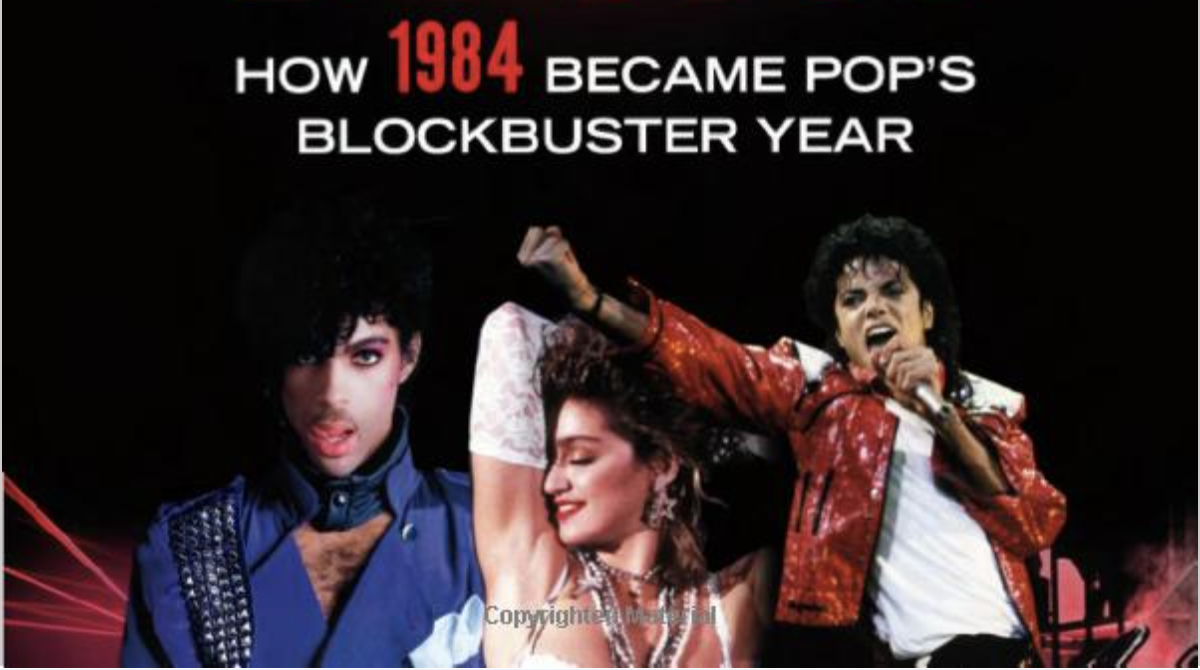Wham! and Peter Case Docs Show the Pros and Cons of Fan Service

Wham!
Two new music documentaries are made for the artists’ fans, with the usual mixed results.
Music documentaries are first and foremost fan service. That makes sense since fans are the people most likely to see the films, and the filmmakers themselves are usually fans too. The movie itself is an extreme expression of the basic impulse to say to someone, They’re excellent, right? Skeptics can notice weaknesses in the films as films, but skeptics are not the primary audience.
Two new music docs, Wham! and Peter Case: A Million Miles Away, are streaming now, and they illustrate the pros and cons of the genre.
Wham! on Netflix is, understandably the glossier project. It was the glossier band and.it came to life during the video era when pop stars became England’s biggest stars. That means Wham!’s career is well-documented with good archival footage and images. It helps that Andrew Ridgeley’s mum kept comprehensive scrapbooks of the band’s history and media clippings, and the books themselves give the movie a homemade visual through-line.
One thing that comes from the early footage is that the band’s success was less of a given than it would seem in retrospect. That’s part of pop’s magic. Good pop seems inevitable, but when Wham! shows pictures of a young, less chiseled George Michael with acne and curlier hair, and you don’t see a pop star in waiting. The movie says that record companies were of the same opinion, and Wham! got their foot in the door when one member’s mother was friends with another mother in the neighborhood whose son was in the business. That kind of luck got the group in the game.
The news in the movie is that “Careless Whisper” was on the band’s first demo along with “Wham! Rap” and label after label passed on it. The demo didn’t sound like an obvious hit at the time. It was a bit rough and ready, still in need of polish, much like Michael and Ridgeley. After that, the story is familiar enough in the general and specific. Things go well-ish until a lucky break added a few zeroes to the number of people who knew Wham! existed, at which point the band has to live up to the moment and did. Had it not been for the mom network and another band getting sick at just the right moment, Wham! could easily have never happened, or been a talisman for the ‘80s equivalent of cratediggers.
For fans, there’s a fair amount of unseen footage including outtakes from the infamous party scene in the “Last Christmas” video. It was shot at a Swiss chalet with actual friends as the guests in the video’s story, and a member of the crew filled all the wine glasses on the table to near full. The director saw this and realized that if the party had been at the table eating and drinking for hours, the wine glasses wouldn’t be uniformly full and had the cast drink them down to more natural levels. That led to more drinking and more drinking and it turned into a mess. That part of the story has been told, but the unused footage in the doc shows how juvenile it got.
Wham! feels a bit too neat though as Ridgeley, the primary storyteller, comes off as perfectly sanguine about Michael’s emergence as the star, the end of the group, and though it’s not part of the film’s story, his drift out of the spotlight. In the big picture, it all tracks. After 1984’s prophetically titled Make it Big, it’s not clear what was left to do besides more, and it’s easy to imagine that Ridgeley would have been further marginalized by the press and the industry had the project gone on, and that could have been more emotionally damaging to their relationship. As is, he has the benefit of mailbox money and enough fame to enjoy many of the perks of pop success without having to carry the baggage. Still, it’s hard to believe he was always as sanguine with the changes in the dynamics of their friendship, and Wham! would have benefited from a little emotional nuance. It’s told as the story of two friends, but even friends have ups and downs.
Peter Case: A Million Miles Away is a very different movie. Case looked like a can’t-miss talent from the start, but he missed. Or, he certainly didn’t become the level of star that others saw as possible for him, and you can understand that belief when you see footage of him as a late teen. He was obviously good looking with a strong, capable voice with a light touch of John Lennon in it to hint that everything he sang meant a little more (or less) than the words themselves conveyed. The movie tries to figure out how someone with such obvious star potential ended up playing folk music to audiences that number in the hundreds, but director Fred Parnes clearly has a narrative in mind, so much so that he skips past what sure sounds like an answer in the first few minutes.
I’m curious if a therapist would link his difficult relationship with his father to his tendency toward self-destruction. At one point in the movie, someone tells the story of his label head David Geffen asking Case what he wants, and when Geffen gives it to him, Case starts to crawfish. “Peter, take yes for an answer,” Geffen reportedly said, and that feels like a pattern in his story. He finds his way out of the power pop band The Plimsouls, whose best-known song gives the movie its title, and he’d work the same magic with his marriage to Victoria Williams and his solo career on Geffen Records. Whenever things looked like they might be getting good, he found ways out of them.
To be fair, that’s how things looked from the outside, but Parnes doesn’t tell us about problems within his band, his marriage, or his label—at first, anyway. It’s also fair to wonder how good things could have been for any of his musical projects. In the early ‘80s while The Plimsouls played Beatlesque garage rock in Los Angeles, the British new wave that included Wham! had far more currency in the marketplace, As good as his 1986 self-titled folk debut is, it was even farther from where the money was at the time. Case and many of his contemporaries including members of the Continental Drifters are interesting in the way they were insurgent figures in the 1980s as they mined garage rock, R&B and pop history and synthesized it with a punk ethos, only to find themselves the voices of tradition as the aesthetic ground under them shifted with time. That’s not quite the story Parnes tells though. He presents Case as a restless artist, noble in his quest to be his most authentic musical self regardless of the cost.
That perspective will make Case’s fans feel righteous because they recognize the talent that so many missed, and it helps that he’s rooted in rock ‘n’ roll’s bedrock stuff. All of that’s true, but it downplays the role he played in ending up where he did, including betting on rock ‘n’ roll, which has craps out far more talents than it pays.
The two documentaries tell very different stories, but each is shaped by the narratives fans have constructed around the acts. Wham! gives us a story of friendship, while Peter Case: A Million Miles Away presents Case as a figure with bedrock integrity. Each is true yet incomplete, but both films perform a valuable service. Wham! and Case merit the kind of reconsideration that a doc in the streaming world can feed.
Wham! flashed so quickly and so intensely that it’s tempting to dismiss it as one of those pop moments, but as Wham! segued into Michael’s solo career, the British new wave began to be normalized as part of the new pop world and their role in that is undeniable. Similarly, Case made music at every phase of his career that deserved more attention than it got, though I still find The Man with the Blue Post-Modern Fragmented Neo-Traditionalist Guitar as tough a listen as the title promises. He may have made choices that resulted in a cult following, but his talent merits a larger following than that.
Creator of My Spilt Milk and its spin-off Christmas music website and podcast, TwelveSongsOfChristmas.com.






